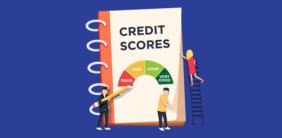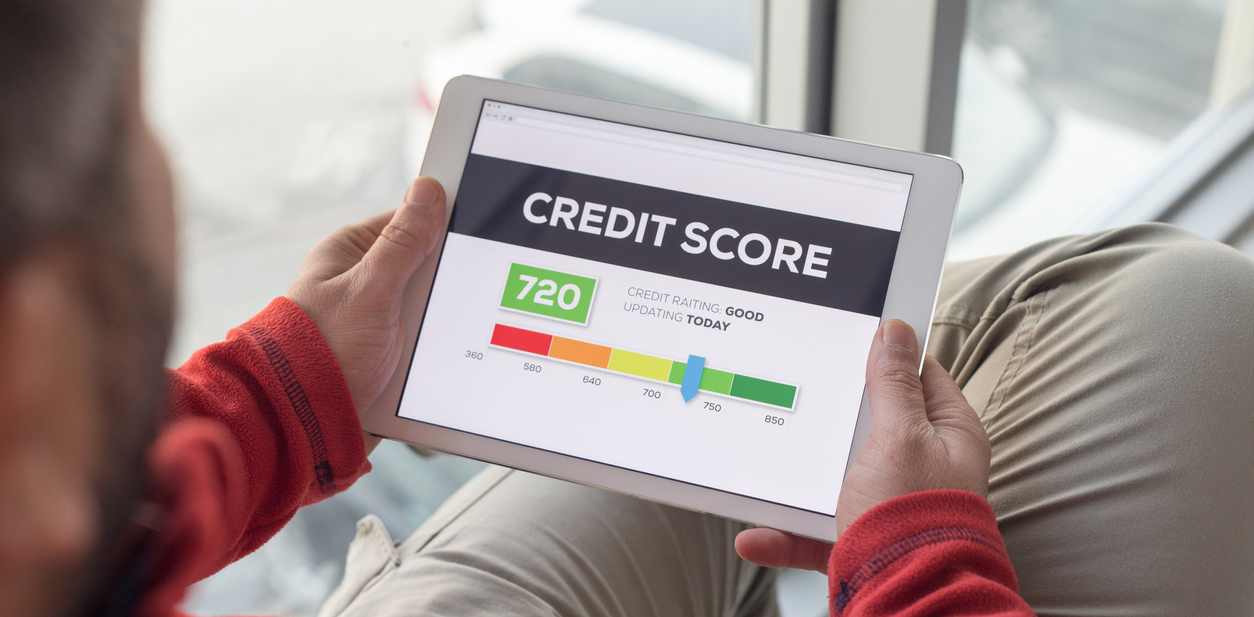The 2017 Equifax data breach exposed financial data for almost half of all Americans and resulted in a $425 billion settlement.
It wasn’t the first time the door had been opened for identity thieves, and it won’t be the last. If someone steals your personal information, the best-case scenario is that you catch it in time and only have a minor hassle to report it. At worst, you could lose thousands of dollars, face hours of work, and have the headache of a lifetime.
It doesn’t have to be that way, though. There are clear steps you can take to protect your financial data, and even if someone does get it, there are things you can do to prevent a negative fallout.
Freeze Your Credit
One of the strongest things you can do to protect yourself is to place a credit freeze on your credit report with each of the three credit bureaus. You’ll need to do this with each of the three credit bureaus individually:
When you put a credit freeze on your credit report, no one can gain access to it, even you. When you want to apply for credit, you’ll need to contact each credit bureau and temporarily “thaw” your credit. You’ll get a PIN in order to do this, so make sure you don’t lose it.
That sounds like an annoyance but consider this: After the Equifax breach, you can safely assume that cyber criminals probably have your information already. They can use this to apply for credit in your name, which is how most identity theft happens.
But with a credit freeze, you’re literally blocking any potential creditors from seeing your file unless you control their access. If a crook does apply for credit in your name, it won’t be granted because you already blocked access to that file.
Lock up Your Financial Documents and Know When to Get Rid of Them
Another big source of identity theft happens right in your own home. It’s relatively easy for thieves to gain access to your Social Security number, date of birth, and other details printed on the documents from your own financial institutions.
Make sure to keep anything with sensitive data on it locked in a safe area, such as in a filing cabinet or a fireproof lockbox. If someone were to break in your home, ask yourself which sensitive documents they’d be able get — and then lock them up.
You don’t need to keep these documents forever. If you keep them around you also raise the risk that someone can steal them. So when you’ve held onto them long enough, it’s a good idea to safely get rid of them with a paper shredder. If you don’t have one, consider stopping by a local credit union because they often allow members to use their shredders. The Federal Trade Commission has good guidelines for how long to keep certain documents.
How to Keep Your Personal Data Safe Online
Back in our grandparents’ days, all you had to worry about was keeping physical documents secure. But chances are you do most of your transactions online now, and this brings on new risks and a whole new industry for data security.
How to keep your personal data safe on the internet
You’ve probably heard the advice before of not clicking on unsolicited emails because it could be a scam or a phishing attempt. If you click the wrong link it could also download malware onto your computer.
Yet, people still fall for this trick in droves. That’s because it can be especially tricky to sort out real emails from fake ones, so you’ll need to put your skeptic hat on. Look for clues like subtle changes to a sender’s name (such as “Capitol 0ne” instead of “Capital One”), poor grammar, or a sender you don’t recognize. Make sure you have the right antivirus protection set up on your computer for your operating system. This includes for your smartphone as well. Bitdefender is a great cybersecurity choice you can use across all your devices.
You’ll need to enter your information in somewhere eventually, so another handy tip is to double-check the website’s URL before you do. Make sure it starts with “HTTPS,” which shows it’s encrypted, before you do. If you’re using the Google Chrome browser, this also shows a small lock icon to show you that you’re safe. Never enter any sensitive information on a regular “HTTP” site.
It’s also a good idea to sign up for two-factor authentication whenever you can and make sure your contact details are up-to-date. This decreases the likelihood that thieves can get access to your accounts, and if they try, you’ll get a heads-up first. Don’t enter your personal details over an insecure Wi-Fi network either, because crooks could be listening in.
Finally, consider using a password manager like LastPass. These help you generate and store those super-secure yet hard-to-remember strong passwords. All you have to do is come up with one secure master password and remember it to get access to your account.
How to keep your information safe on social media
You’re smart enough to realize that giving out your Social Security number, bank account number, or other sensitive information over social media channels isn’t a good idea.
But did you know that one especially insidious way for thieves to get your data is to mine your profiles for little-known information about you?
For example, if you set your password to be your child’s name and birthdate and then post these details on your social media channel, it’s an easy way for thieves to guess what your bank password is. Or, thieves could use these details about you to change your password by finding the answers to your pre-set security questions.
That’s why you should set your profiles to “private.” Don’t participate in any of those “20 things you didn’t know about me” copy/paste posts that you see your friends doing unless you’re sure you’re not inadvertently exposing any of your password details. And if you see that hackers have gained access to your friend’s social network accounts, unfollow them until they’ve fixed the problem (sorry, Mom).
What You Can Do If Your Financial Data Is Stolen
It can be scary to know that someone knows your sensitive details. Luckily, there are different layers of theft. The simplest case is if someone steals your credit card number, for example. In this case, all you have to do is contact your card issuer to get it resolved. It’s a small hassle to fix, but not a huge deal in the grand scheme of things.
Full-on identity theft is a different and more serious issue where someone actually pretends to be you to open accounts in your name in order to get access to credit. This can take hours to resolve and could affect your credit score for years. Another potentially dangerous threat is if someone steals your debit card. Federal rules say that if 60 days pass from when you receive a bank statement with the stolen money listed on it, you could lose all the money that was stolen — even if it was the balance in your entire account.
The biggest thing you can do to protect yourself against this — and other — threats is to routinely check your credit report and financial accounts. You won’t always get an immediate notification if someone steals your information, after all, so keeping your eyes on your accounts is the best way to spot it.
If someone has stolen your identity, make sure to file a police report right away. It might seem like overkill, but you’ll need a copy of that police report as proof for the next steps.
Next, put a fraud alert on your account with each of the bureaus and fix any errors on your report. You may need to contact your bank, creditors, or any other lenders listed on your credit report to close out any fraudulent accounts. You’ll also need to file a report with the FTC, which also has a handy guide to recovering your identity when it’s stolen.
Bottom Line
The only way to keep your data truly safe is to never interact with anyone or anything. Unless you live in a cave, however, that’s not realistic and so most of us will need to take some risks.
Sometimes, keeping your data safe just comes down to luck. For example, if a company sends you a statement with your account number on it and a thief steals it, there’s not much you can do.
Like with all things, though, there are things you can do to affect that luck. Freezing your credit is a big step you can take today, and then being cautious in the rest of your interactions will help you keep your financial information safe in most cases.
About The Author
RateGenius
A better way to refinance your auto loan. RateGenius works with 150+ lenders nationwide to help you save money on your car payments. Since 1999, we've helped customers find the most competitive interest rate to refinance their loans on cars, trucks, and SUVs. www.rategenius.com
;)












